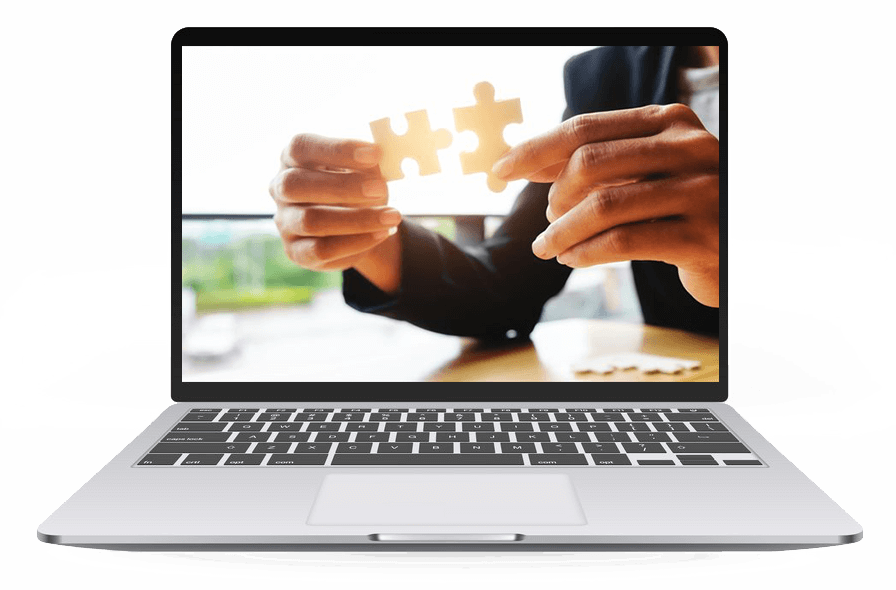The Benefits and Burdens of Industry 4.0 and ERP for Manufacturing

When it comes to Industry 4.0 and manufacturing, enterprise resource planning (ERP) is well-positioned to streamline the successful implementation and adoption of these new technologies. Manufacturers who are forward-thinking and who don’t want to be left in the dust of progress, understand the need to harness the potential of ERP in order to better utilise the benefits of Industry 4.0.
What is Industry 4.0?
Industry 4.0, or the fourth industrial revolution, is a new stage in the development of how the industrial value chain is organised and controlled. Machines now use modern control systems with embedded software systems that use the internet to connect to, and be addressed by. This allows machines, products, and other manufacturing elements to become linked to computer systems, opening the door for ‘smart’ networking and communication. This creates new ways of production, value creation, and real-time optimisation.
IR4.0 brings these four benefits to manufacturing
Bernard Marr, the best-selling international author who wrote books on KPIs, data strategy and analytics, and intelligent companies, has identified these four key characteristics of the emergent revolution known as Industry 4.0.
1 – Uninterrupted Connection
Each link in the production chain must communicate with the other links; be it the people manning each station, or the machines that they use and monitor. The sensors in these machines must share uninterrupted data with each other, and this vast volume of data must be available on all devices, presented in a user-friendly platform, in order to promote collaboration and communication.
2 – Information Transparency
Context is key when it comes to information transparency. It is not good enough that data is simply available; the system should also have the ability to present the data in such a way that it is easy to access, analyse, and that improves decision-making.
3 – Technical Assistance
One of the hallmarks of IR4.0 in manufacturing is the improved safety that robotics and automation are bringing to the shop floor. Along with technology’s ability to help people solve complex problems and support the decision-making processes, Industry 4.0 sees technology replacing tasks that are difficult or unsafe for people to do.
4 – Decentralised Decision-Making
The joining together of cyber and physical manufacturing can only achieve a revolutionary level of utility by operating without constant monitoring. Industry 4.0 sees the rise of decentralised decision-making.
The new burdens of industry 4.0
Innovation brings disruption and challenges, and Industry 4.0 is no exception. The integration of older existing systems with new systems creates process and security vulnerabilities. Rising gaps in people skills for technological know-how, as well as people skills like communication and critical thinking, are widened when new technology is introduced, requiring a greater training burden on the organisation to upskill, or even reskill valuable employees. Convincing decision-makers and staff to embrace new technologies mean these concerns will need to be addressed and the benefits of Industry 4.0 demonstrated.
The role of ERP in all of this
Manufacturers who wish to harness the power of Industry 4.0 to propel them towards becoming smart, efficient, and competitive, need a way to deliver the shortest possible product run, improve the speed of delivery, trace the product through every step in the chain, manage that chain, and forecast all of these things with greater accuracy than before. This is a tall order, but ERP is the best solution to these demands and has been solving these kinds of challenges for a long time.
ERP + IoT = A-OK
The Internet of Things (IoT) sees every device connected to the internet, smart, intuitive, and spewing forth spans of data at an unimaginable rate. ERP is the ideal system to interpret the wealth of information provided by all these IoT devices, and produce results, particularly in manufacturing.
While IoT data collection is far from a cutting-edge innovation, it is the combination of that data with ERP’s muscular capabilities to actively improve manufacturing processes that will set manufacturers apart.
The beauty of ERP in manufacturing is that it brings out the benefits of IR4.0, and handles the burdens with ease.

Imagine this: sales, CRM, procurement, purchase orders, material costs, inventory control, business intelligence, accounting, staff, and more all aligned with one another, automating transactions without errors, removing the need for expensive, time-wasting, and potentially dangerous plug-and-play manual operations. ERP does all of this. Complex business operations are streamlined with ERP or BOS, making long-term decision-making easier and improving efficiency on day-to-day tasks.
Plus, most employees know how to use the BOS system they have used for years, thus reducing the need for massive retraining programs for new platforms.
ERP does not replace humans in its automation functionality, rather it empowers them. Machine uptime and available factory floor space increase while labour costs and anxiety over waste go down.

